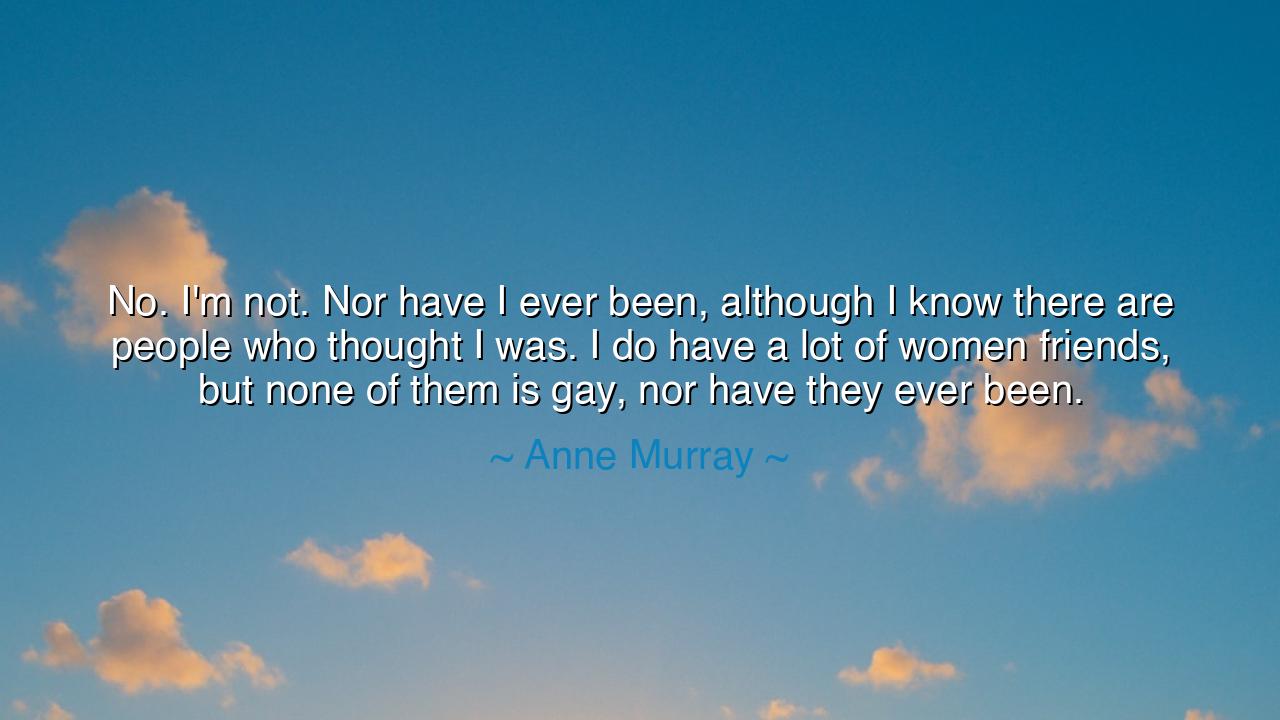
No. I'm not. Nor have I ever been, although I know there are
No. I'm not. Nor have I ever been, although I know there are people who thought I was. I do have a lot of women friends, but none of them is gay, nor have they ever been.






The words of Anne Murray — “No. I’m not. Nor have I ever been, although I know there are people who thought I was. I do have a lot of women friends, but none of them is gay, nor have they ever been.” — arise from the tension between public image and private truth. They reveal how the gaze of society often casts assumptions upon the lives of the famous, weaving stories not from reality, but from rumor and projection. Her response is not only denial but a declaration of clarity: that friendship with women does not need to be bound in speculation about identity.
In every age, people have judged what they cannot understand. To have close bonds, especially as a woman in the public eye, was often seen through the lens of suspicion. Murray’s words remind us that the heart may hold many friendships without them conforming to the categories others wish to impose. To speak openly — “No. I’m not.” — is to resist the weight of whispers, to choose honesty over fear, and to reclaim one’s life from rumor.
The ancients knew this struggle well. Sappho of Lesbos, the poet whose verses celebrated the beauty of women, was both celebrated and maligned, her friendships and loves subjected to endless speculation. Similarly, queens like Elizabeth I of England faced gossip about every bond, as if a woman could not rule or live without her relationships being politicized. In each case, the individual’s truth was eclipsed by the stories others chose to believe.
Murray’s insistence that her many women friends were not gay is also an assertion of the freedom of friendship. For friendship itself, deep and abiding, is a bond worthy of honor, not suspicion. In a world too quick to confuse intimacy with romance, her words defend the sacred space of companionship — a reminder that the love of friends has sustained humanity across all ages, from the friendship of David and Jonathan to the philosophical bonds of Socrates and his disciples.
Let the generations remember: identity is not for others to assign, nor for rumor to shape. The truth of one’s life belongs to the soul that lives it. Anne Murray’s words remind us to honor friendship for what it is, to resist the lure of idle speculation, and to recognize that dignity lies not in labels cast from without, but in the integrity spoken from within. For in the end, it is truth, not rumor, that endures.






AAdministratorAdministrator
Welcome, honored guests. Please leave a comment, we will respond soon